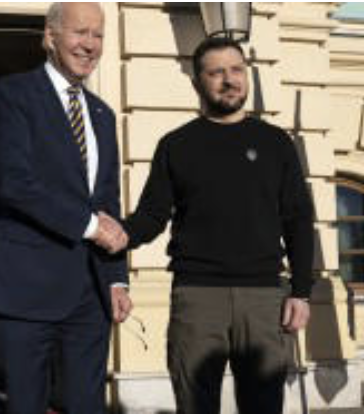While all eyes were on a New York courthouse, President Biden, Secretary Blinken and presumably some complicit NATO members gave Ukraine the green light to use American-supplied weapons to strike targets in Russia, but near the Kharkiv region.
This decision marks a significant change in policy as the administration initially said this would escalate the war by more directly involving the U.S. in the fight. The move is intended to allow Ukraine to use U.S.-supplied weapons for “counter-fire purposes” to hit back at Russian forces that are attacking or preparing to attack them in the region.
This decision is a direct response to the recent Russian offensive in the Kharkiv area, which is close to Ukraine’s eastern border with Russia.
U.S. officials within the Administration have emphasized that this permission is limited to the area around Kharkiv and does not include the use of long-range strikes or the Army Tactical Missile System (ATACMS) inside Russia. It allows for ordinance such as rockets and rocket launchers to shoot down launched Russian missiles heading toward Kharkiv, at troops massing just over the Russian border near the city, or Russian bombers launching bombs toward Ukrainian territory.
The Biden administration has also stated that it does not support or enable the use of munitions provided by the U.S. to strike inside Russia, but that this change in policy is a response to the evolving battlefield conditions.
Can it be construed as war?
However, the approval can be seen as an act of war because it involves one country (in this case, Ukraine, with the support of the United States) directly striking targets within another country (Russia). This is a significant escalation in the conflict, as it involves direct military action against Russian territory. Such actions can provoke retaliation and further escalate the situation. It demonstrates the desperation seeping into Ukraine where the war is going badly on the East.
Russia has made moves to strike a peace deal whereby each country keeps the land it currently holds. This makes some cultural sense as the industrial areas in the eastern Donbas speak Russian and identify with her. However, Zelensky, the industrial military complex, and other vested interests hell-bent on proving something to Putin have rejected the moves.
BOMBSHELL: President Joe Biden secretly gave Ukraine permission to strike inside of Russia using US weapons.
— 🇺🇸Travis🇺🇸 (@Travis_4_Trump) May 30, 2024
This is an act of war from the US on a superpower! This is beyond an impeachable offense. The President of the United States is secretly dragging us into a nuclear… pic.twitter.com/PiYljBlnrP
